Jen Black's Blog, page 27
April 19, 2020
Changing one's Mind
Back in September 2013, I was not too keen on the new series of Downton Abbey.
 “the first episode was very close to boring. The most exciting thing to happen was O'Brian disappearing into the night leaving only two notes behind on the mantelpiece. Not that she's a loss, really. I never liked her, and she is the one who spoilt the Granthams’ last chance of producing an heir.” But the programme didn't sparkle. Perhaps it is hard to sparkle when there are widows and relatives in black all over the house and neighbourhood. Lord Grantham is being absurdly dictatorial and instead of giving stick-thin Mary a shake or two, he continually urges everyone to let her be; let her grieve in peace. Silly man.”
“the first episode was very close to boring. The most exciting thing to happen was O'Brian disappearing into the night leaving only two notes behind on the mantelpiece. Not that she's a loss, really. I never liked her, and she is the one who spoilt the Granthams’ last chance of producing an heir.” But the programme didn't sparkle. Perhaps it is hard to sparkle when there are widows and relatives in black all over the house and neighbourhood. Lord Grantham is being absurdly dictatorial and instead of giving stick-thin Mary a shake or two, he continually urges everyone to let her be; let her grieve in peace. Silly man.”Since then, would you believe, I have bought all the CDs and watched every episode so many times I have lost count. My perceptions have changed, and not only because the episodes have filled many an hour of winter television where the programmes on offer were too gory for me to enjoy.
I understand the characters better now than I did in 2013, and even if Robert is too kind to bereaved Mary, he is consistently kind to everyone throughout – except perhaps to Barrow. Carson is not kind to him either; I was drawn into Barrow’s story this winter and had a lot of sympathy for him. His transformation through the series was well done and so, surprisingly was Edith's. I cheered when Bertie Pelham became the Marquess of Hexham and Edith told the family "That's the thing. He is the Marquess." Robert's delight, Mary's horror, and Cora's aside to Mary - "Anyone would think your were jealous, dear, and we wouldn't want that, would we?"
I shall be watching the CDs again, whenever there is a dearth of good programmes to be had on live tv.
Published on April 19, 2020 16:30
April 16, 2020
Good news, bad news.
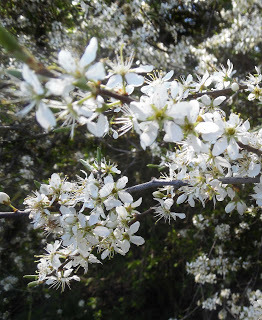
If we believe the tv news, then sales figures suggest the UK was stockpiling novels last week as people prepared for a spell in isolation. Unhappily, chains like Waterstones are deemed non-essential and have closed too but it does mean that those who sell e-format books may do well. Sales of fiction rose by a third, children's education went up an astonishing 234% - a record figure. Puzzle books, handicrafts and true crime also rose. Nielsen Book are keeping track: "We've seen significant jumps in sales of puzzle books, adult colouring titles, home-learning titles for children, study guides, and we have seen been a big increase in sales of paperback novels."Waterstones may be closed, but supermarkets are still open, and they sell paperbacks. So do Amazon. Physical book sales may now plummet as readers turn online. Waterstones online sales have risen 400% week on week.It reported a "significant uplift" for classic titles like Gabriel García Márquez's One Hundred Years of Solitude and Love in the Time of Cholera, Toni Morrison's Beloved, F Scott Fitzgerald's The Great Gatsby, and Sylvia Plath's The Bell Jar.
"Our bestseller is Hilary Mantel – there is plenty of time now to read those 900 pages of The Mirror and the Light. It's doing really well," said Waterstones fiction buyer Bea Carvalho.
Published on April 16, 2020 04:43
April 9, 2020
Going free
FREE today ~ The Matfen Affair
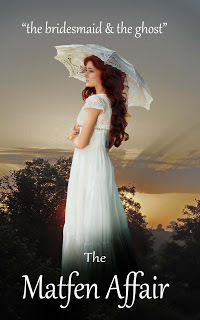
Doing my bit to ease the lockdown situation I'm making one of my titles free for a little while as from today. Others will follow in due course.
So why not hop over to
https://tinyurl.com/zvl7s2c (US)https://tinyurl.com/z246enk (UK)https://tinyurl.com/y5y9srgb(Au)
and grab a copy while you can?
My word, where to start?This novel is concerned with little more than marriage. It takes place over the space of a few days as a family is drawn together for a wedding. And little else is on the minds of the guests. But there is a ghost story that is seamlessly blended into the plot and adds a delightful frisson of mystery and danger.This is pure Austen. A family who want to marry off their youngsters, and that is pretty much the main theme of this novel yet as simplistic as that sounds, it does it perfectly. Even if the ghost story were taken out completely, this tale would still work perfectly. It would still be as readable, it would still flow as smoothly and with the same surprising pace. This is an absolute gem of a novel, a delight, one of the best Regency Romances I have ever read. I could not put this down. I read it in a handful of hours and resented the time I had to leave it alone.As a classic Regency Romance, this is a must if you like the genre. I can't praise it highly enough.© Nicky Galliers

Doing my bit to ease the lockdown situation I'm making one of my titles free for a little while as from today. Others will follow in due course.
So why not hop over to
https://tinyurl.com/zvl7s2c (US)https://tinyurl.com/z246enk (UK)https://tinyurl.com/y5y9srgb(Au)
and grab a copy while you can?
My word, where to start?This novel is concerned with little more than marriage. It takes place over the space of a few days as a family is drawn together for a wedding. And little else is on the minds of the guests. But there is a ghost story that is seamlessly blended into the plot and adds a delightful frisson of mystery and danger.This is pure Austen. A family who want to marry off their youngsters, and that is pretty much the main theme of this novel yet as simplistic as that sounds, it does it perfectly. Even if the ghost story were taken out completely, this tale would still work perfectly. It would still be as readable, it would still flow as smoothly and with the same surprising pace. This is an absolute gem of a novel, a delight, one of the best Regency Romances I have ever read. I could not put this down. I read it in a handful of hours and resented the time I had to leave it alone.As a classic Regency Romance, this is a must if you like the genre. I can't praise it highly enough.© Nicky Galliers
Published on April 09, 2020 01:53
April 5, 2020
Embalming medieval style

Honey bees live through the winter as a colony, unlike wasps and bumblebees.
They don’t hibernate but stay active and cluster together to stay warm, which requires a lot of food. Bees have been collecting and storing honey during the summer in the UK for something like one hundred and fifty million years. They need 20-30 lb of honey to get the through an average winter.In a good season, an average hive will produce around 25 lb (11 kg) surplus honey. It takes a huge amount of work, for the bees fly 55,000 miles to make one pound of honey. Romans valued it so much they paid taxes in it, and Neolithic farmers stole it from the bees when they could.Bees collect the sweet sticky nectar from flowers, mix it with enzymes from glands in their mouths and then store it in honeycombs – the hexagonal openings we are familiar with - until the water content has been reduced to around 17%. Then the bees seal it with a thin layer of wax until they want to use it. Once capped, the honey will keep indefinitely. Honeycomb found in the tombs of the pharaohs was still edible after three thousand years. Melissopalynology is an established science that allows researchers to study the landscape and its vegetation over millions of years by analysing pollen extracted from soil samples. It is also useful in modern day analysis of soil samples in criminal cases or predicting hay fever levels.I once listened to a lecture at a conference which I must admit I now remember imperfectly, but the gist of it was that a coffin from medieval days was opened a decade or two back in or around the locality of St Bees Head in present day Cumbria. Unusually, the coffin was sealed and unbroken. On opening, the archaeologists discovered the body had been embalmed in honey. The eyes were still “wet” but of course soon crumbled as air reached them as it did immediately the coffin was opened.
I’m sure they will be a paper about this somewhere in some university library. I must remember to look it up and read it one day.
Published on April 05, 2020 14:42
April 1, 2020
The long, hot summer
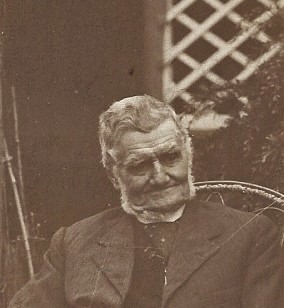
1911 was remembered as the year of the heat wave.Summer temperatures climbed after May and hovered between 80F and reached 92F (33C) in King's Lynn in Norfolk breaking all previous records for East England. By the end of July the lack of rain and scorching sun resulted in a paucity of grass as pastures turned brown. Farmers were forced to raise the price of milk. By late July song birds were silent in the fields and lanes. In early August the health of England was faltering in the continuing heat.The sun continued to burn down, and activity in meadow and field ceased. Water pumps and village wells ran dry. The relentless sunshine became oppressive. People crossed to the shady side of the street.Sun-darkened skin was undesirable and acceptable only in the labouring class and sunburn was a serious hazardOn 11 September the average temperature suddenly dropped by 20 degrees and prospects of rain before long were expectedThe Lady magazine was already devoting several pages to new autumn fashions, and sumptuous furs had arrived on the rails of the new department stores. The long, hot summer was over. This is the background to my latest writing. Seen through the eyes of Ellen, an American dollar princess who finds herself in trouble because she seems unable to become pregnant – and there is a large estate dependent on there being an heir.
Published on April 01, 2020 03:49
March 26, 2020
Knitting, anyone?
I don't think this is a response to the Corona virus, but I've taken up knitting again!
 It's a skill we used to learn at school. I wore out the pair of socks I made in primary school and was very proud of them. I doubt I could turn a heel today, but you never know. Have just finished a sweater for DH and am now on a lemon yellow sweater for me. The pattern includes a christmas snowman, but I shall ignore that. Knitting again after so long made unacustomed muscles ache for a day or two, well a week, actually, but now I've got the stamina built up again, really enjoy knitting and don't want to stop. It is so much better than all those other bad habits I developed wnile watching tv!
It's a skill we used to learn at school. I wore out the pair of socks I made in primary school and was very proud of them. I doubt I could turn a heel today, but you never know. Have just finished a sweater for DH and am now on a lemon yellow sweater for me. The pattern includes a christmas snowman, but I shall ignore that. Knitting again after so long made unacustomed muscles ache for a day or two, well a week, actually, but now I've got the stamina built up again, really enjoy knitting and don't want to stop. It is so much better than all those other bad habits I developed wnile watching tv!
It used to be cheaper to knit a sweater than buy one, which is why we all did it. Everyone, but everyone knitted in my youth. I'm still wearing Aran sweaters I kntted thirty years ago. They don't seem to age at all.
Now the opposite is true. I've had sweaters I bought recently go thin and nasty in less than two years. I imagine that is because they are made abroad somewhere.
I'm glad to see a wool shop has opened recently in our small town in Northumberland. It began in very small premises and recently moved to larger premises, so I'm hoping it is here to stay. Everyone will get knitted presents now, just like in the old sit coms, so be warned!
 It's a skill we used to learn at school. I wore out the pair of socks I made in primary school and was very proud of them. I doubt I could turn a heel today, but you never know. Have just finished a sweater for DH and am now on a lemon yellow sweater for me. The pattern includes a christmas snowman, but I shall ignore that. Knitting again after so long made unacustomed muscles ache for a day or two, well a week, actually, but now I've got the stamina built up again, really enjoy knitting and don't want to stop. It is so much better than all those other bad habits I developed wnile watching tv!
It's a skill we used to learn at school. I wore out the pair of socks I made in primary school and was very proud of them. I doubt I could turn a heel today, but you never know. Have just finished a sweater for DH and am now on a lemon yellow sweater for me. The pattern includes a christmas snowman, but I shall ignore that. Knitting again after so long made unacustomed muscles ache for a day or two, well a week, actually, but now I've got the stamina built up again, really enjoy knitting and don't want to stop. It is so much better than all those other bad habits I developed wnile watching tv!It used to be cheaper to knit a sweater than buy one, which is why we all did it. Everyone, but everyone knitted in my youth. I'm still wearing Aran sweaters I kntted thirty years ago. They don't seem to age at all.
Now the opposite is true. I've had sweaters I bought recently go thin and nasty in less than two years. I imagine that is because they are made abroad somewhere.
I'm glad to see a wool shop has opened recently in our small town in Northumberland. It began in very small premises and recently moved to larger premises, so I'm hoping it is here to stay. Everyone will get knitted presents now, just like in the old sit coms, so be warned!
Published on March 26, 2020 14:32
March 20, 2020
HISTORICAL ROMANCE WRITING
How much description should go into a historical romance? Usually I start like this:
OK, I have my great premiseThen I focus on a time and a place for this story
NO, no, no.
Let's re-think that.
In historical fiction, the setting should be essential and the first thing I think about. If readers feel my story could have happened anywhere, at any time, then I’ve failed at the very first hurdle. The historical setting must come first. I need a story that could have taken place nowhere but the one place where it did happen.
Once we have a time and place sorted, how to describe it?
 I aim to make it vivid, but I remind myself not to overdo it. Especially not to do description in huge chunks. Today’s readers are impatient creatures, and won't tolerate long descriptive paragraphs as they did in the past.
I aim to make it vivid, but I remind myself not to overdo it. Especially not to do description in huge chunks. Today’s readers are impatient creatures, and won't tolerate long descriptive paragraphs as they did in the past. So instead, I should drip-feed descriptions of the setting into my story. I should keep descriptions short and powerful and use every sense I have. We smell and hear places as well as see them. Some places have an atmosphere and sometimes it is peaceful and sometimes it is threatening.
I should not forget to describe the social and cultural morals of the time. Gin Lane without the gin would just be inaccurate.
Use metaphors and similes where Ican but I must make them original. Clichés are not what I want. If there is movement in the scene, that is better than a an unmoving one. If I can remember all this when I'm writing, then I should be well on the way to achieving my aim!
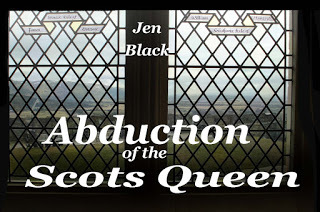
Published on March 20, 2020 03:24
March 16, 2020
Can you build a character?
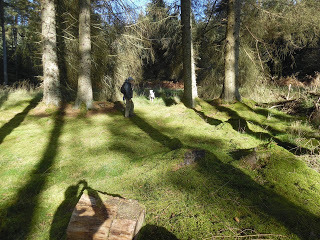 This is my little memo to self on How To Build a Character. Read at your peril!
This is my little memo to self on How To Build a Character. Read at your peril!What makes a character unique?
Observable qualities ~ This includes physical appearance, mannerisms, speech style, gestures, sexuality, age, IQ occupation, personality, attitudes, values, where and how she or he lives.
That’s the simple level. True character lurks behind this mask. Only time will tell if they are loyal, honest, loving or cold-hearted or even downright cruel, cowardly and weak.How do we tell which they really are? True character shows in the actions and choices made at a time of dilemma or danger.
The key to character is Desire. What does the character want? Now, and in the future? Does the character even recognise this need?
Then there’s motivation. Why does the character need this thing? Can it be attributed to parental upbringing, culture and or genes?
Physical image and setting says much about a character, but could be a lie or a mask. Other characters may and probably do comment on them, but they might have a hidden motive for what they say.
What the character says of himself may or may not be true.
The trick is not to muddle readers. Your character may be a guilt-ridden ambitious person but must be consistent in oth his guilt and his ambition. Focus on the main character and fit the rest around him – they must bring out his contradictions and his values, his sadness and his wit. Always assuming he has any. Your character may have other values.
Published on March 16, 2020 17:30
March 13, 2020
What's the stake?
 Identify the primary value at stake in a story.
Identify the primary value at stake in a story.It's a good phrase, but does it mean anything?
The protagonist usually represents the positive side of this value and the antagonist the negative side.
Now, can one have a heroine who is both protagonist and antagonist? Would that make life interesting? I think it happens often enough in real life. When there is a problem, then the heroine struggles to solve the problem. In my current work, honesty is at stake. If a successful outcome means she must lie, or do something dishonest, then the two sides of her nature will argue with each other - or against each other - in the story.
How successful will it be for the readers?
I suppose that will depend on how good the exposition is - facts, info about the character that is necessary for the reader to understand her motivation, for her story and desperation to be understood. The skill is to make it invisible and usually the dreaded words Show dont Tell creep in at this point. The author should dramatize the exposition if possible. Look at it this way - the charachter knows their world, their history and themselves - or we hope they do. Let them use what they know to get what they want. Think of self-knowledge as a gun and let them shoot it out. Reveal your character slowly; let unimportant facts come first, the most critical facts last.
Published on March 13, 2020 18:00
March 11, 2020
A first-class scene
Do you ever analyze a scene in a book?

There are several things that must contribute to this, but one of the most important is to
Define Conflict. Who drives or motivates the scene? What does he want? Does he get it? if not, what stops him? Can he change this?
Has the scene been well set? Do we (the reader) know the value the character puts on the object he is trying to achieve? Will it change his life? Or merely make him more comfortable? Is it worthy?
Throughout the scene keep checking what the character seems to be doing and what he is actually doing.
Note the closing of the scene. What has changed? There must be something that has changed.
The reader should be able to locate the turning point - where action becomes a reaction, and the shape or the pattern of events will change.
It sounds easy enough. Now to go to my work in progress and check.....

There are several things that must contribute to this, but one of the most important is to
Define Conflict. Who drives or motivates the scene? What does he want? Does he get it? if not, what stops him? Can he change this?
Has the scene been well set? Do we (the reader) know the value the character puts on the object he is trying to achieve? Will it change his life? Or merely make him more comfortable? Is it worthy?
Throughout the scene keep checking what the character seems to be doing and what he is actually doing.
Note the closing of the scene. What has changed? There must be something that has changed.
The reader should be able to locate the turning point - where action becomes a reaction, and the shape or the pattern of events will change.
It sounds easy enough. Now to go to my work in progress and check.....
Published on March 11, 2020 06:02
Jen Black's Blog
- Jen Black's profile
- 6 followers
Jen Black isn't a Goodreads Author
(yet),
but they
do have a blog,
so here are some recent posts imported from
their feed.



